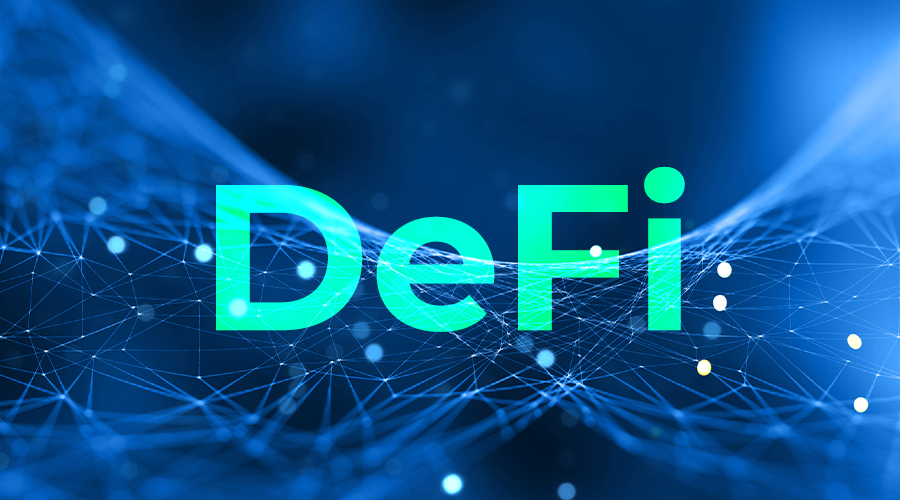
Decentralized finance (DeFi) is a fast-growing ecosystem of financial applications built on blockchain technology. It promises to revolutionize how we think about financial services by making them more accessible, transparent, and decentralized. However, one of the major challenges facing the DeFi ecosystem is identity verification. Traditional identity verification systems are centralized, inefficient, and often require users to disclose sensitive personal information. Decentralized identity (DID) systems offer a potential solution to this problem by allowing users to maintain control over their identity information while still being able to verify their identity to access DeFi applications. In this article, we will explore the self-sovereign identity (SSI), one type of DID system gaining traction in the DeFi ecosystem.
What is Self-sovereign Identity (SSI)?
Self-sovereign identity (SSI) is a type of DID system that allows individuals to maintain control over their identity information. With SSI, individuals are able to create a digital identity that is unique to them and can be used to verify their identity across different platforms and applications. Unlike traditional identity verification systems, SSI allows users to store their identity information locally on their devices rather than in a centralized database. This means that users have complete control over their data and can choose who to share it with and when.
How Does Self-sovereign Identity (SSI) Work?
SSI is based on the principles of cryptography and blockchain technology. In an SSI system, an individual creates a digital identity that is unique to them. This identity is stored on a decentralized network, such as a blockchain, and is protected by cryptography. When individuals need to verify their identity to access a DeFi application, they can provide proof of their identity verified by the blockchain. This proof is known as a verifiable credential and contains cryptographic proof that the individual is who they say they are.
Advantages of Self-sovereign Identity (SSI) in DeFi
There are several advantages to using SSI in the DeFi ecosystem:
- Increased Privacy and Security: With SSI, users have complete control over their identity information. They can choose what information to share and when and don’t have to disclose sensitive personal information to centralized third-party identity verification providers.
- Reduced Friction: SSI makes accessing DeFi applications easier by eliminating the need for complex identity verification processes. Users can simply provide a verifiable credential to prove their identity, which can be verified by the blockchain in a matter of seconds.
- Interoperability: SSI is designed to be interoperable across different platforms and applications. This means that users can use the same digital identity to access multiple DeFi applications without creating a new identity for each application.
- Reduced Costs: SSI can reduce the costs associated with identity verification for DeFi applications. Traditional identity verification systems are often expensive and require significant resources to maintain. SSI eliminates the need for centralized third-party identity verification providers, which can result in significant cost savings for DeFi applications.
Challenges of Self-sovereign Identity (SSI) in DeFi
While SSI offers many advantages for the DeFi ecosystem, several challenges need to be addressed:
- Adoption: SSI is still a relatively new concept, and there is a lack of awareness and understanding among users and developers. Adoption of SSI will require education and outreach to help users and developers understand its benefits and how to implement it in their applications.
- Standardization: There are currently no widely adopted standards for SSI, which can make it difficult for different SSI systems to interoperate. Standards must be developed and adopted to ensure that different SSI systems work together seamlessly.
- Scalability: SSI systems can be computationally expensive, making them difficult to scale. As more users adopt SSI, it will be important to develop scalable solutions to ensure the system can handle the increased demand.
- Security: SSI relies on cryptography and blockchain technology to protect identity information. However, these technologies are not infallible and can be vulnerable to attacks. It is important to develop robust security measures to protect against potential threats.
Use Cases for Self-sovereign Identity (SSI) in DeFi
SSI has several use cases in the DeFi ecosystem:
- KYC/AML Compliance: Many DeFi applications require to Know Your Customer (KYC) and Anti-Money Laundering (AML) compliance. SSI can provide a secure and privacy-preserving way for users to verify their identity without disclosing sensitive personal information.
- Token Sales: SSI can be used to facilitate token sales by providing a secure and efficient way to verify the identity of investors.
- Decentralized Exchanges: SSI can be used to facilitate decentralized exchanges by providing a secure and efficient way to verify the identity of traders.
- Lending and Borrowing: SSI can be used to facilitate lending and borrowing in DeFi applications by providing a secure and efficient way to verify the identity of borrowers.
Conclusion
Decentralized identity (DID) systems, such as self-sovereign identity (SSI), offer a potential solution to the challenge of identity verification in the DeFi ecosystem. SSI allows individuals to maintain control over their identity information while still being able to verify their identity to access DeFi applications. While SSI offers many advantages, several challenges, such as adoption, standardization, scalability, and security, need to be addressed. Despite these challenges, SSI has several use cases in the DeFi ecosystem, including KYC/AML compliance, token sales, decentralized exchanges, and lending and borrowing. As the DeFi ecosystem grows, SSI will likely play an increasingly important role in providing secure and privacy-preserving identity verification solutions.
